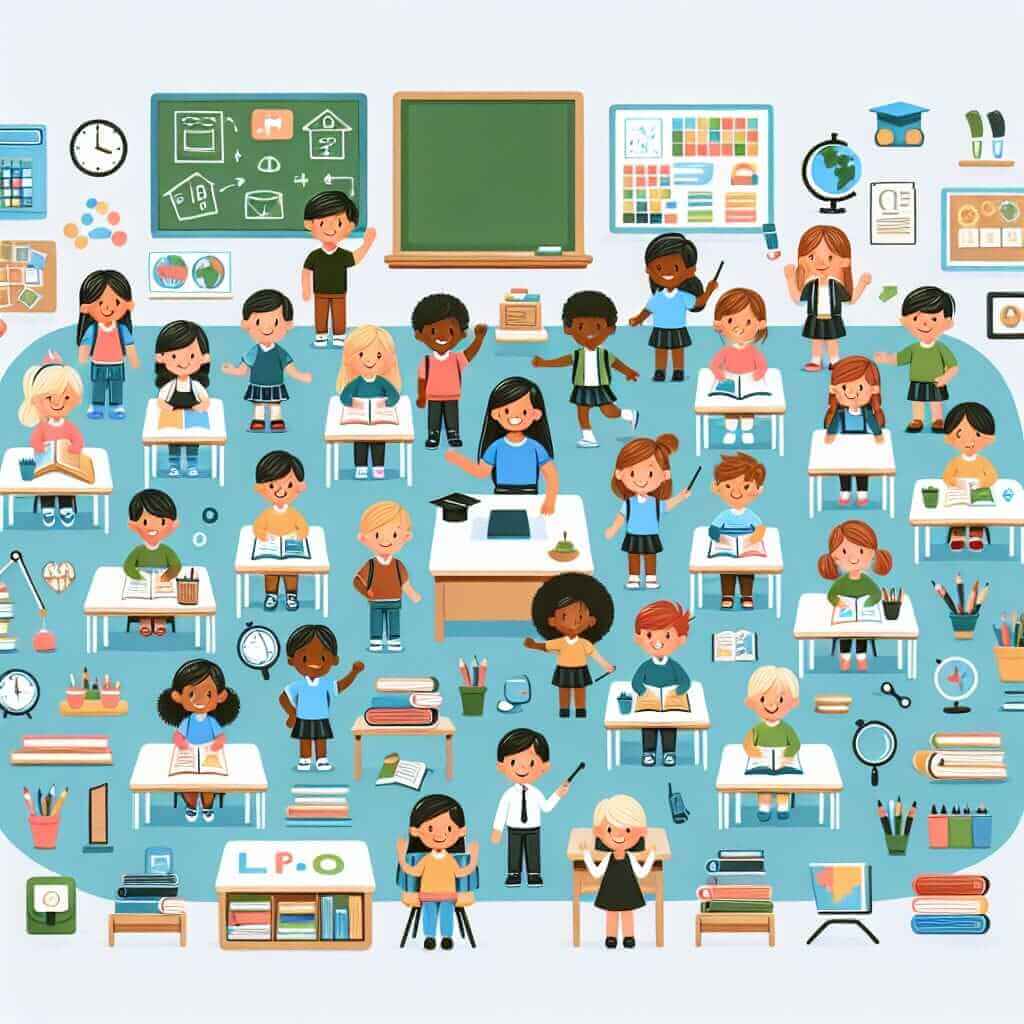The intersection of education and gender equality is a topic frequently appearing in IELTS Writing Task 2. This is unsurprising given its global relevance. Exam questions can be phrased in various ways, requiring you to:
- Discuss the importance of education in achieving gender equality.
- Analyze the challenges and solutions to promoting gender equality through education.
- Evaluate the effectiveness of educational initiatives aimed at bridging the gender gap.
Sample IELTS Writing Task 2 Question:
Many believe that education is the key to achieving gender equality. To what extent do you agree or disagree?
Analysis of the Question:
This question presents a clear viewpoint – that education is fundamental to gender equality. You are asked to express your opinion on the extent to which this statement is true. It’s crucial to:
- Present a clear stance: Do you strongly agree, partially agree, or disagree?
- Provide balanced arguments: Acknowledge both the strengths and limitations of education in this context.
- Support your arguments with evidence: Use real-world examples, statistics, or logical reasoning.
Model Essay:
Education is widely regarded as a cornerstone of societal progress, and its role in fostering gender equality is undeniable. While education alone cannot eradicate deeply ingrained societal biases, I firmly believe it is the most potent tool we possess to dismantle barriers and create a world where opportunities are not dictated by gender.
Firstly, education empowers individuals with knowledge and critical thinking skills, enabling them to challenge traditional gender norms. By providing equal access to quality education for both boys and girls, we equip them to question stereotypes, reject discriminatory practices, and advocate for their rights. For instance, girls who receive a comprehensive education are more likely to pursue higher education and enter traditionally male-dominated fields, challenging the notion that certain professions are reserved for one gender.
Moreover, education plays a pivotal role in transforming social attitudes and behaviors. By incorporating gender equality principles into curricula and fostering inclusive learning environments, we can nurture a generation that respects and values the contributions of all individuals, regardless of gender. When children are taught from a young age about the importance of gender equality, they are more likely to internalize these values and carry them forward into their adult lives, creating a ripple effect of positive change.

However, it is important to acknowledge that education, while essential, is not a panacea for gender inequality. Deeply rooted cultural norms, economic disparities, and discriminatory laws can impede progress, even in the presence of robust educational systems. Therefore, it is imperative to address these systemic barriers alongside educational reforms to create a truly equitable society.
In conclusion, while acknowledging the limitations, I firmly believe that education is the most effective catalyst for achieving gender equality. By empowering individuals, transforming social attitudes, and equipping future generations with the tools to challenge gender norms, education paves the way for a more just and equitable world where everyone can thrive, regardless of gender. (Word count: 298 words)
Notes for Writing:
- Vocabulary Range: Use a variety of words and phrases related to education, equality, and social change. Avoid repetition and aim for precision in your language.
- Grammatical Accuracy: Pay close attention to subject-verb agreement, article usage, and sentence structure. Complex sentences demonstrate a higher level of grammatical control.
- Coherence and Cohesion: Use transition words and phrases to connect your ideas logically. Ensure that each paragraph flows smoothly into the next.
- Examples and Evidence: Support your claims with relevant examples from history, current events, or personal experience. This adds weight to your arguments.
Difficult Vocabulary:
- Ingrained (adjective) /ɪnˈɡreɪnd/: Firmly fixed or established; difficult to change.
- Dismantle (verb) /dɪsˈmæn.təl/: To take apart or break down a system or structure.
- Stereotypes (noun) /ˈster.i.ə.taɪp/: Oversimplified and often inaccurate beliefs about a particular group of people.
- Discriminatory (adjective) /dɪˈskrɪm.ɪ.nə.tɔːr.i/: Unfairly treating a person or group differently from others.
- Curricula (noun) /kəˈrɪk.jʊ.lə/: The subjects comprising a course of study in a school or university.
- Inclusive (adjective) /ɪnˈkluː.sɪv/: Including everyone and treating them equally.
- Internalize (verb) /ɪnˈtɜː.nəl.aɪz/: To make (attitudes or beliefs) part of one’s nature by learning or unconscious assimilation.
- Panacea (noun) /ˌpæn.əˈsiː.ə/: A solution or remedy for all difficulties or diseases.
- Impediment (noun) /ɪmˈped.ɪ.mənt/: A hindrance or obstruction in doing something.
- Catalyst (noun) /ˈkæt.əl.ɪst/: Something that causes a change or an event to happen.
Conclusion:
Mastering the topic of gender equality and education’s role within it is valuable for your IELTS journey. Remember to practice writing essays on similar themes, exploring different perspectives and refining your vocabulary and grammar. With consistent effort and a nuanced understanding of the issue, you can confidently approach any IELTS Writing Task 2 question on this important subject.